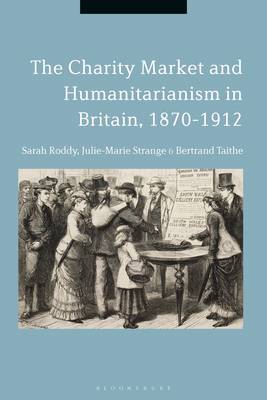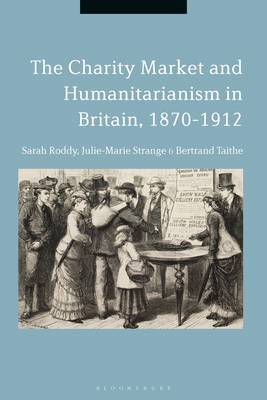
- Retrait gratuit dans votre magasin Club
- 7.000.000 titres dans notre catalogue
- Payer en toute sécurité
- Toujours un magasin près de chez vous
- Retrait gratuit dans votre magasin Club
- 7.000.0000 titres dans notre catalogue
- Payer en toute sécurité
- Toujours un magasin près de chez vous
The Charity Market and Humanitarianism in Britain, 1870-1912
Sarah Roddy, Julie-Marie Strange, Bertrand Taithe
76,45 €
+ 152 points
Format
Description
This book is available as open access through the Bloomsbury Open Access programme and is available on www.bloomsburycollections.com. It is funded by Manchester University.
This book examines the business of charity - including fundraising, marketing, branding, financial accountability and the nexus of benevolence, politics and capitalism - in Britain from the development of the British Red Cross in 1870 to 1912. Whilst most studies focus on the distribution of charity, Sarah Roddy, Julie-Marie Strange and Bertrand Taithe look at the roots of the modern third sector, exploring how charities appropriated features more readily associated with commercial enterprises in order to compete and obtain money, manage and account for that money and monetize compassion. Drawing on a wide range of archival research from Charity Organization Societies, Wood Street Mission, Salvation Army, League of Help and Jewish Soup Kitchen, among many others, The Charity Market and Humanitarianism in Britain, 1870-1912 sheds new light on the history of philanthropy in the Victorian and Edwardian periods.Spécifications
Parties prenantes
- Auteur(s) :
- Editeur:
Contenu
- Nombre de pages :
- 240
- Langue:
- Anglais
- Collection :
Caractéristiques
- EAN:
- 9781350168732
- Date de parution :
- 25-06-20
- Format:
- Livre broché
- Format numérique:
- Trade paperback (VS)
- Dimensions :
- 156 mm x 234 mm
- Poids :
- 335 g

Les avis
Nous publions uniquement les avis qui respectent les conditions requises. Consultez nos conditions pour les avis.






